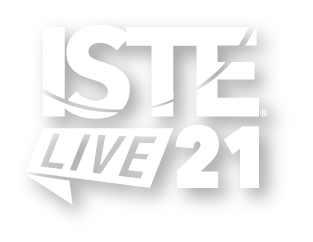

From Consumption to Creation: Maker-Centered 3D Modeling for Young Learners |
Explore and create : Playground
This is presentation 1 of 3, at station "Maker Playground Station 2" within the playground "Maker Playground: Focusing on the Next Generation of Maker Activities"; scroll down to see more details.
Other presentations in this group:
| Audience: | Teachers, Technology coordinators/facilitators |
| Skill level: | Beginner |
| Attendee devices: | Devices useful |
| Attendee device specification: | Laptop: Chromebook, Mac, PC Tablet: Android, iOS |
| Participant accounts, software and other materials: | tinkercad.zendesk.com |
| Topic: | Maker activities & programs |
| Grade level: | PK-5 |
| Subject area: | STEM/STEAM |
| ISTE Standards: | For Educators: Citizen
|
By the end of this session participants will be able to apply Maker-centered Thinking Routines (Harvard Graduate School of Education, Project Zero - PZ) to help young learners understand and use 3D-modelling and printing softwares to design artefacts that meet real-life needs.
Learning about digital tools through thinking routines, in opposition to direct instruction, helps students develop more than just digital skills. The main outcome of this approach is maker empowerment, defined by PZ as "a sensitivity to the designed dimensions of objects and systems, along with the inclination and capacity to shape one’s world through building, tinkering, re/designing, or hacking". In this sense, technological skills such as 3D designing are acquired as a manifestation of citizenship and social engagement.
1. Presenters share their experience using thinking routines to foster maker dispositional thinking in young Brazilian learners and as means to develop 3D modelling skills to create real-life solutions for various social contexts. (25 minutes)
5. Participants ask questions and contribute to expand the use of thinking routines. (5 minutes)
http://www.pz.harvard.edu/projects/agency-by-design
https://pz.harvard.edu/thinking-routines#CoreThinkingRoutines
https://www.youtube.com/watch?v=GalkLjxlBaY
http://www.pz.harvard.edu/resources/maker-centered-learning-empowering-young-people-to-shape-their-worlds
http://www.agencybydesign.org/explore-the-framework


Boldly Go! Using Virtual Field Trips to Explore Your Curriculum
CANCELLED: Using Robotics to Connect Dual Language Immersion, Literacy and STEAM
School Librarian as Game Changer: Innovative Strategies to Inspire Teachers and Learners